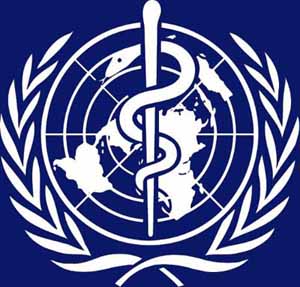WHO: No need for travel, pork import restrictions
 Geneva - World Health Organization officials reiterated Tuesday that travel restrictions would not help stem the spread of the swine influenza virus, which was possibly spreading in the form of human-to-human transmission. "Border controls don't work, screenings don't work," said spokesman Gregory Hartl, speaking to reporters in Geneva. "Travel restrictions do not help."
Geneva - World Health Organization officials reiterated Tuesday that travel restrictions would not help stem the spread of the swine influenza virus, which was possibly spreading in the form of human-to-human transmission. "Border controls don't work, screenings don't work," said spokesman Gregory Hartl, speaking to reporters in Geneva. "Travel restrictions do not help."
The incubation period of the virus, which could be for up to six days, as well as the widespread nature, would make spot checks at airports, for example, ineffective.
Keiji Fukuda, WHO assistant director-general for health security, said the UN agency was sticking with its term "swine influenza" for the virus, in spite of some calls to institute a change, and said he hoped there would be no "undue confusion."
In response to action by some countries which have banned pork from Mexico and some US states, the WHO reaffirmed that it did not recommend such moves.
"There is no danger from eating pork. If you cook pork well, any meat well, it kills any virus," Hartl said.
The virus appeared to have a human-to-human transmission pattern, but the majority of confirmed cases outside of Mexico were still "imported" meaning the people who contracted the disease did so while visiting the Latin American country.
The WHO was still only able report 79 laboratory confirmed cases around the world, including 26 cases in Mexico, of which seven were lethal and 12 resulted in severe illness.
In the United States, the organization confirmed 40 cases in five states and another six in Canada in two provinces. The UN agency confirmed two cases in Spain, another two in Britain and three in New Zealand.
Reports from some countries placed the number higher.
"We are still looking for the origins of the virus," Harlt noted, adding that the limited number of confirmed cases was hampering efforts to locate the source or multiple points of origin.
The night before, the WHO had increased its pandemic influenza alert status to phase 4, up one step from its previous level, indicating sustained human-to-human transmission. This was one step closer to declaring a pandemic situation, but indicated that such a dire declaration was not inevitable.
If it moved to phase 5 "it really tells us that the virus is established in sustained human-to-human transmission in a number of countries," said Fukuda.
Epidemiological studies showed three small waves of human-to-human transmission in Mexico and the WHO suspected similar transmissions in other areas, including possibly in New York.
So far, there was little indication the spread of the virus outside Mexico was connected to contact with pigs.
There were no estimates on the fatality of the virus, Hartl said, adding that experts were still trying to solve the riddle of why the only deaths so far have been in Mexico. Also a mystery was why the fatal cases occurred in young, seemingly healthy people.
"We still do not have a good explanation why the pattern for cases in other countries appear relatively mild while the pattern in Mexico appears much more severe," said Fukuda. "This will be the object of great deal of attention."
The WHO has said containment was no longer an option and efforts should be focused on protection of people.
"We are really in period when countries should really take the opportunity to prepare themselves for the possibility of a pandemic," said Fukuda, an assistant director general at WHO, adding that "an evolution into a pandemic cannot be considered inevitable."
Fukuda warned though that countries should not neglect the day-to- day health needs of their populations while dealing with the evolving swine flu situation. (dpa)